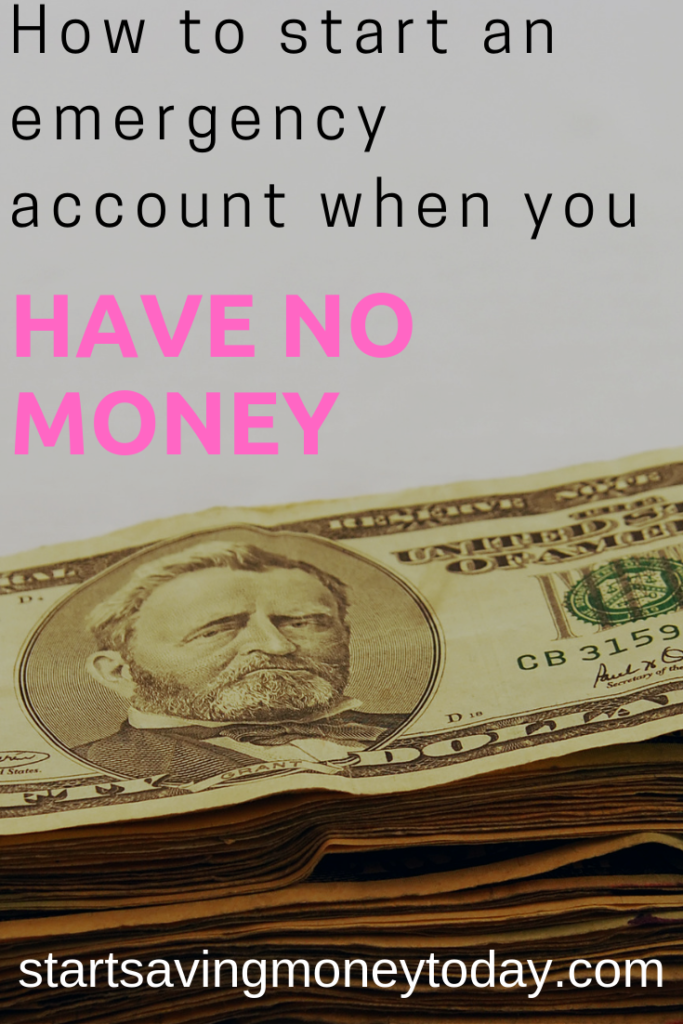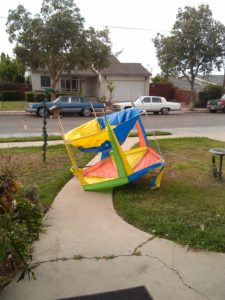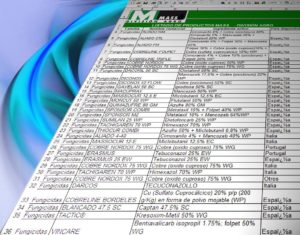How to start an emergency fund
Most people know they need to have money set aside for an emergency. It’s good they know it, but there’s a downside. Most people are already strapped for money. They can’t see a way to add one more financial requirement to their already strained paychecks. So, can you start an emergency fund (s) account with no money?
What are emergency funds
An emergency fund is money you keep to get you through a genuine emergency. You don’t get into this money to offset inconveniences like getting the lawn mower fixed, nor do you use it to replace an old couch. The money in this fund is for emergencies only.
Recommended Reading
Debt Free
Spending Journal
Budget
Sinking Funds
The Frugal Mindset
What is an emergency
The dictionary definition of an emergency is “a serious, unexpected, and often dangerous situation requiring immediate action.” Here are some
synonyms: accident, catastrophe, crisis, disaster.
The perception of an emergency is to some extent subjective. Your idea of an emergency may not meet my criteria for one. For example, if you have no savings and the brakes on your car go out, that may be an emergency to you. (How will you get to work?) For me that would be just an inconvenience because I have funds specifically designated for car repairs. It’s taken time to get to this point, but I budget my money and have a fund for car repair and a rental car. I plan for upcoming events like replacing tires and breaks. Car repair is not likely to be an emergency for me now, but there was a time in the past it would have been.
Define what an emergency is for you. You’ll need to review your financial responsibilities and priorities, so developing this idea could take some time. You’ll periodically want to do a reassessment; over time you may find that your definition changes as the status of your finances changes. I will tell you this: Losing our jobs would qualify as an emergency for most of us . Unemployment pay is less than what we’re used to bringing home (and it is taxed). Also, under usual circumstances we get it for a maximum of 26 weeks; finding an adequate new job in that amount of time is still a challenge for many people. This would be one of those times we would really like to have reserve emergency funds to help get us through, and that’s when an emergency fund account would come in handy.
Are emergency funds overrated
The answer is simple NO. Emergency funds are intended to preserve your lifestyle if something goes wrong car repair, medical bill, loss of employment, and much more. An emergency fund is your cushion.
Emergency funds should be six months of savings
In our emergency funds we need enough money to live for six months. That’s six months worth of paying bills, rent/mortgage, utilities, car payment, weekly expenses, and everything else. According to gobankingrates less than half of Americans had $1,000 in savings in 2017. That means over half of us don’t have an emergency fund account. Actually, even when they exist, most emergency funds are under funded.
You think you can’t save that much money
Yes, you can, and it doesn’t have to be a grueling experience. I’m going to give you 7 tips that will help you to save money for your emergency funds.
7 Tips to help start an emergency fund
Pick a number
I can only imagine what you are thinking right now. I can’t save that much money. I don’t earn that much. I’m in too much debt. I can’t do that.
I have good news for you. You don’t have to save the whole 6 months of income at once. Just start saving. Pick a moderate amount to add regularly. (Make the amount one you can realistically save.)
Emergency funds aren’t negotiable
Building an emergency funds account should be a high priority. To not contribute to it isn’t an option. The purpose of an emergency fund is to bail you out when disaster strikes. To do that it needs to be strong.
Most people plan ahead for the events and things that are important to them. That’s how they are able to participate in them or get them done. If you see your emergency funds account are at least as important as this week’s groceries or this month’s rent/mortgage, you’ll be more likely to succeed in finding a way to put money into it. After all, those funds may be the means to buying groceries or keeping a roof over your head sometime in the future.
Tip: Every payday put the predetermined amount of money in to your emergency funds account, then “forget” about it.
Get real about your needs and wants
Smart phones simply amaze me. I’m not amazed by the technology, but I’m amazed by the number of people that have them. What I find to be most amazing is what people do with smart phones: Facebook, chat each other, watch movies, play games, and take pictures. I have a hard time understanding how a phone is more important than an emergency funds account. Don’t misunderstand me I have a smart phone, but I had an emergency funds account first.
In my opinion smart phones are overrated. Do we really need to check Facebook many times a day, or have the cellular tech companies just pushed us into a new era of “keeping up with the Joneses?”
It’s important to have your needs and wants balanced. Take care or your “I needs” before your “I wants”. Too many people have this backwards. They give priority to their wants over their needs, and that’s why so many people don’t have emergency funds.
Track your goal every payday
You can’t really manage your finances if you don’t keep track of how much you have and what you spend it on. I think the easiest way to do this is to use a spread sheet. It’s a convenient way to review your budget. Your spreadsheet can be on your computer or in a columned notebook. (You can buy
one made for this purpose or draw columns in a regular notebook.)
It’s not hard to use a spreadsheet. If you’re not familiar with them, you can go to the internet to get instructions for working with one. Make your emergency fund one of the categories in your budget. You’ll record the date for deposits (and if needed withdrawals) and how close you are to your goal of being fully funded. (Remember, the experts recommend a sum equal to 6 months of living expenses.)
Tracking should help keep you motivated to save.
Extra money
There are any number of reasons people take on side gigs and second jobs to make extra money. When they receive extra money, they spend it on you fill in the blank. They immediately put it towards their latest “I just got to have.” Later, they often suffer from buyer’s remorse. They know they should have used it to cover a need, but now it’s too late. We all have spending triggers. Be on guard against them. To be frugal and to manage a good budget we should spend the additional money where it will best serve us best. If you earn some extra money for mowing lawns, pet sitting or get a windfall like a tax returns put it towards your emergency fund account. What could be a better use for it than to protect your lifestyle?
I have credit card bills. I’m paying double digit interest rate
Ok, I understand that you have credit card or loan debt and your creditors are charging more interest than you’ll make if you have a savings account for emergencies. That tends to make you want to put your money towards your debt, rather than save it—right? I will never say paying down debt is a bad thing, but if you don’t have any money to apply towards an emergency, what will you do if one happens? (And let’s be honest, they do.) You’ll have to incur more debt (and more interest). If you start to build your emergency fund account now, you may well be able to save yourself from that scenario. If you build up your emergency funds as you pay down your debts, you will be in a better position to financially survive a disaster (if for no other reason than having funds will make it easier to get a loan if you really need it.)
Becoming debt free and building an emergency fund account should be done at the same time.
Make the emergency funds account a bit difficult to get to
If you aren’t in the habit of saving money, you’re in the habit of spending all of your money. That brings us back to the purpose of building an emergency fund account. It’s for emergencies. It does no good to save against the probability of an emergency and then spend it on non-emergency things.
I can’t over-stress this. We all have spending triggers, and we need to guard against them.
My emergency funds account is in a bank that has locations only in California. (I don’t live in California.) I have a debit card linked to that account that I keep at home in a lock box. My emergency funds are available to me, but the little bit inconvenience in accessing them will give me time to consider if I am really facing an emergency or something I could fund by giving up something nonessential—like dining out for a couple of months.
Here’s an alternative: I know people that have their emergency fund account in a local bank. They declined to take a debit card for it. This way they eliminate the temptation of borrowing (stealing) from it.
Be smart with the money you put in your emergency fund. Protect it.
Conclusion
The money in an emergency funds account can protect your lifestyle.
I’m sure you’ve come to the conclusion that you don’t actually start an emergency fund account with no money. What you do is exert more control over your available funds. Every one of us spends money on something nonessential, probably a number of things. Redirect some of that money into a savings account: Designate it “For emergency use only.” If you really don’t have sufficient income to make regular contributions, find a way to generate more. That “more” doesn’t have to be a huge amount; you’re building an emergency fund account. Just remember, every dollar you save is one you won’t have to borrow to get through a financial crisis. If you’re consistent in making your contributions, you could be surprised at how quickly the money accumulates.
I’ve given you seven tips to aid in starting an emergency funds account. Using these tips you will know how to start an emergency funds account with no money.




